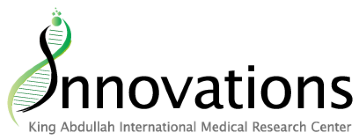
Saudis with a higher educational background were more likely to be aware of the genetic risks of consanguineous marriages.© HONGQI ZHANG / ALAMY
Children born to genetically related people from the same family — so-called consanguineous marriages — face serious health risks. A recent study conducted in Saudi Arabia, where the practice is still common, shows that women there have a higher awareness of these risks compared to men.
Consanguineous marriage can result in children with cognitive difficulties, heart defects, and impaired hearing, as well as other genetically inherited diseases. It can also lead to increased chances of a child inheriting two copies of a defective gene from a shared common ancestor, perpetuating otherwise recessive genetic disorders.
Anwar Ahmed from King Abdullah International Medical Research Center and a team of researchers from across Saudi Arabia conducted a cross-sectional study of 386 Saudis over the age of 18 to determine their level of knowledge regarding these health risks.
Each participant completed two questionnaires. The first aimed to gather social details, including the level of education in their families, and included questions on marriage and known inherited diseases. The second questionnaire focused more closely on knowledge of the genetic consequences of consanguineous marriage.
Overall, knowledge of the genetic instability caused by consanguineous marriage was lower among Saudi adults than in other countries. Around 6% of respondents lacked any knowledge, and a third of those questioned had never received any information related to genetic diseases. Interestingly, there was a strong disparity between the sexes, with women demonstrating significantly greater understanding of medical consequences than men.
“This may be explained by the fact that females in our society tend to accept medical information in an objective manner in contrast to males, who are more likely to reject medical information if it is in conflict with the traditional culture,” the team suggest in their paper.
Further, the study revealed that those from a higher educational background, together with those who had received medical information from friends, were more likely to understand the genetic risks and therefore be against consanguineous relationships. Those from backgrounds where families had less education had limited knowledge and were more likely to come from a long-held tradition of consanguineous marriages.
The team urge caution in their results, because a larger, more comprehensive study of adult awareness is required. However, they believe that “Saudi Arabia must conduct widespread health awareness on the risks associated with consanguineous marriages.”


